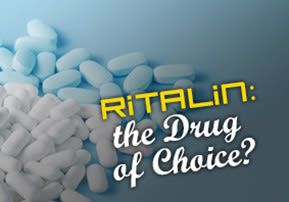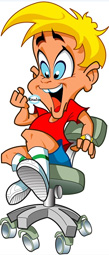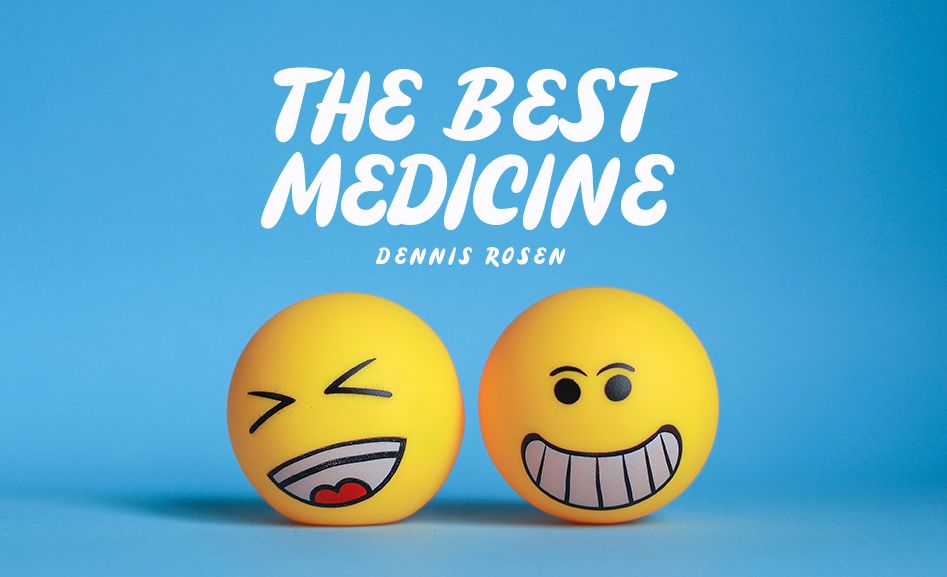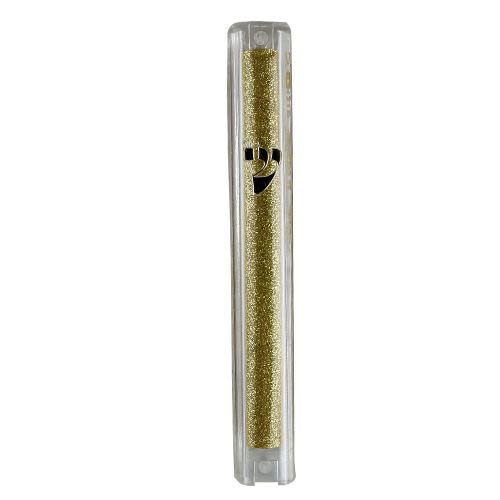
Ritalin: the Drug of Choice?
Labeling a child is extremely dangerous. However, there is a more subtle danger children face when being forced to take Ritalin: it is the danger called “self-doubt"…

The invention of Penicillin was heralded as nothing short of a miraculous life-saver against infections. Nowadays, penicillin-based medicines are the go-to antibiotic to deal with systemic infections. Along with its rising popularity have come the ever-increasing abuse of antibiotics. This is in part, I believe, due to a mental phenomenon that modern medicine has created, called “Lazy Patient-itis.”
Instead of using the internet to research natural-based cures for non-life-threatening illnesses, the masses prefer to use it to pollute their brains with horrifying and perverse images of ISIS-sponsored beheadings or see who can speak the most lashon hara on Facebook. Most of us these days run to the doctor diety in the hopes for a quick and easy fix, instead of taking responsibility for our health.
In my opinion, we are seeing the same phenomenon happening with Ritalin and other Schedule II narcotics, in the same class as cocaine, morphine, and amphetamines. Instead of dealing with the issue in a less comfortable way that could ultimately lead to a healthy, balanced, well-functioning human  being, many rely on the strictly medical route to resolve the ever-increasing phenomenon of ADHD. This reliance may not exclusively result from a search for a convenient solution; it may result from peer pressure, lack of knowledge, pressure from the pediatrician, and/or self-induced or mother-in-law-induced guilt.
being, many rely on the strictly medical route to resolve the ever-increasing phenomenon of ADHD. This reliance may not exclusively result from a search for a convenient solution; it may result from peer pressure, lack of knowledge, pressure from the pediatrician, and/or self-induced or mother-in-law-induced guilt.
I’m going to share with you my experience, in the hopes that you, as parents, will strongly reconsider the treatment modality you currently have your children on. I am not in any way suggesting that you do what I did, nor am I in any way belittling or minimizing the extent of your child’s issue. The ultimate solutions are for you to decide, using your G-d given innate wisdom, Google, and lots of personal prayer. At the very least, you should be aware that there are options, and don’t let anyone force you into doing anything that goes against your innate wisdom.
Over the past four years, every one of my son’s teachers tried to coerce me to give my son Ritalin. I stubbornly refused, knowing instinctively that it was a matter of foreign environment, not understanding the language, and all of the mental and emotional adjustments that come with moving to a foreign country, that were at the root of his inability to sit still and pay attention in class.
The questions that kept me from giving in were: “What will happen to him when he goes off the Ritalin? How will he be able to stay on the same level of functioning? What if he develops a mental crutch, believing that he can only do well in school if he takes the Ritalin? What if he gets a depression from this drug?”
No one could answer my questions. Finally, by the end of last year, I caved in to the principal’s pressure and agreed to do a psycho-didactic evaluation, which would clarify the problem for me.
We did the evaluation, and I honestly can’t remember a thing the psychologist said, other than – you guessed it – “He needs Ritalin.” He painted such a picture that I was overcome with guilt for having refused it for so many years. When I understood that my son was really suffering in school, I realized I had no choice but to start him on this drug.
The results were immediate, but it didn’t fix everything. For several months I gave him the Ritalin, and dealt with several side effects, such as lack of appetite and difficulty falling asleep. Not a good combination, in my opinion.
One thing led to another, and by a crazy incidence of Divine intervention, we suddenly found ourselves in yet another school. Immediately I realized that this school had a very challenging curriculum, and I wondered if my kids would be able to keep up.
Within a few months, after keeping close tabs on my son’s progress, I decided to stop the Ritalin. I encouraged my son and told him that he didn’t need it; that he could do just fine on his own. It took a few starts and stops, but when I saw that the teacher didn’t give me a substantially different report, I decided to stop it altogether. Amazingly, my son has been performing on the same level as he was previously.
This confirmed a few suspicions:
First, the current mode of teaching is a complete failure. A passive mode of learning doesn’t get internalized in a person’s brain beyond needing the information for the next exam. We all know a person learns best through hands-on experience. What made my son shape up? The level of learning is more intense, the teacher is more interactive, and my son doesn’t have a choice but to listen and pay attention!
Second, labeling a child is extremely dangerous. This is obvious. However, there is a more subtle danger children face when being forced to take Ritalin: it is the danger called “self-doubt.” Children as young as six years old are being conditioned to rely on this drug to perform well and be obedient little puppies. No matter what age a child begins taking Ritalin, the longer he takes it, the more he will mentally depend on it. He is in danger of attributing all of his successes to the magic pill, and later on in life could have a hard time adjusting without it; that is, if he even decides to stop using it.
Third, society’s first instinct is to jump to diagnose the child with some type of disorder, instead of pointing the finger at itself. It’s not the child’s fault that most classes are boring, boring, and boring, especially when compared to the action-packed, high-speed video games and cartoons we allow them to indulge in for hours and hours after school. Will we ever open our eyes and look at ourselves as part of the problem?
Is it fair, on one hand, to force a child to listen to a teacher drone on and on for eight hours, and then allow him to overstimulate his brain with such nonsense-filled activities? We’re giving our kids a whole bunch of mixed messages. To add insult to injury, we then make them feel that it’s their fault that they’re hyperactive.
Fourth, we should remind ourselves that ADHD and all related hyperactivity disorders are not diagnosed via lab-based experiments. They are based on observation and several highly biased tests and constantly evolving diagnosing criteria. Here is an excellent paper which takes the “scientific” out of the diagnosis of ADHD: http://dxsummit.org/archives/2009.
Of course there are children with very real disorders that do require medical help. But what percentage is it? The sharply rising level of Ritalin prescriptions each year indicates a plague of epidemic proportions. It should serve as an obvious warning that something is seriously wrong. It is simply impossible that so many children are coming down with ADHD-type disorders. My son was one of those wrongly diagnosed children. He was treated as having some type of hyperactivity disorder, when in reality, he was bored and under-stimulated.
Fixing the educational system is a huge undertaking, and unfortunately it is still a far-off dream – that is, unless you live in Singapore and attend the amazing MindChamps program. Check out this incredible program that is revolutionizing the way children learn, with amazing results: http://www.mindchamps.org/about-us/about-mindchamps
So what can we do?
A healthy diet has been proven to dramatically reduce and, many times, eliminate the effects of hyperactivity in children. This is one of the areas that parents should exploit to the fullest in order to relieve many of the symptoms of ADHD and related disorders. Here is an eye-opening article from Rav Lazer Brody, clearly showing how much diet, and sugar in particular, impact a child’s brain: Diet and Child Temperment.
As you can see, one family noticed a remarkable difference in their child’s behavior simply by taking him off sugars and refined foods.
What is it about sugar and flavor additives that turn kids into wild, uncontrollable monkeys, or dreamy space cadets? Dr. Russell Blaylock, renowned neurosurgeon and research scientist, answers: all of these processed foods are heavily contaminated with excitotoxins.
Excitotoxins are neurotransmitters that excite neurons in the brain. Glutamate, aspartate, and cysteine are three amino acids that are excitotoxins. They are found in overwhelming abundance in processed foods.
Why? Well, they are additives that trick the brain into thinking a bland food is actually delicious. In the link you will find a full explanation of exactly what excitotoxins to do the brain, and why they are so dangerous. You will also find a list of MSG derivatives to beware of when buying food.
Dr. Blaylock’s recommendation? You guessed it: stay away from processed and refined foods, and fake sugars in particular. I know it is much easier said than done, believe me. But, for the sake of our children and their future, we must put forth as much effort as we can to ensure that they have a healthy diet. Remember: a healthy body leads to a healthy brain!
If you want to start a healthy eating program, but you’re too busy with life to put too much thought into it, then check out Breslev Israel’s wonderful nutrition expert, Yardena Slater, at holyhealthiness.com. She’s got awesome, simple recipes that the whole family will enjoy.












Tell us what you think!
Thank you for your comment!
It will be published after approval by the Editor.